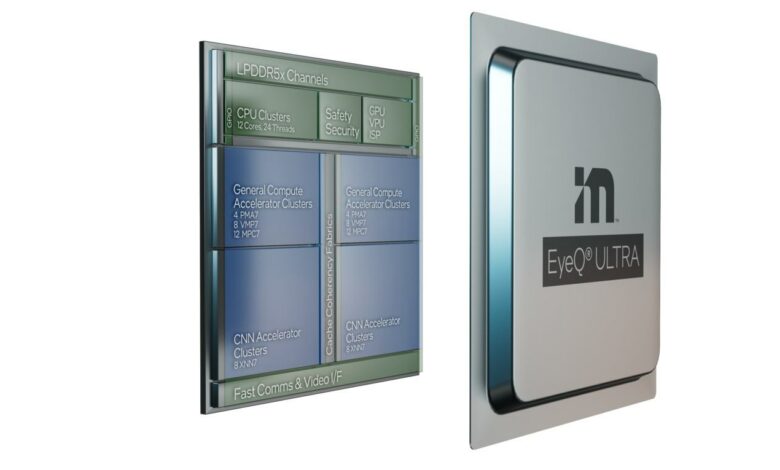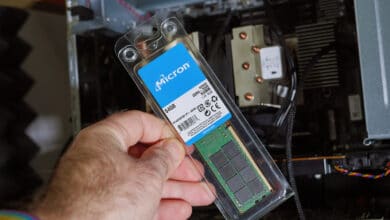
The fact that the automotive industry and the branch of (entertainment) electronics are merging more and more was made clear just recently with our article on the Mercedes-Benz EQXX study. Finally, the German automaker actually used this year’s CES to unveil its upcoming project. Now, at the electronics show in Las Vegas, yet another piece of technology has been unveiled that should be of particular interest to car enthusiasts – the EyeQ Ultra chip.
Autonomous driving moves ever closer
Tesla, Google and Co. have been working for years on the possibility of finally making reliable autonomous driving possible. However, the tech and automotive companies still owe us useful results that can also be used by the masses. Now an Intel subsidiary may have the right solution at hand. With its EyeQ chip, Mobileye has developed a chip that is supposed to be ideally suited for autonomous driving thanks to its energy efficiency. The chip, manufactured using the 5-nm process, is expected to be ready for installation in suitable vehicles as early as 2025.
More than twice as much computing power as the Tesla chip
Certainly, there are already vehicles that implement autonomous driving as a feature. The best-known representative of this is certainly likely to be Tesla. However, the chip of the “king of electromobility” only offers limited computing power. This results in many problems, which can be read regularly in headlines about faulty behavior of Tesla’s “full self-driving”. Mobileye’s chip, unveiled at CES 2022, may well eclipse Tesla’s chip when it comes to adequate computing power. While the e-car maker’s chip delivers 72 tera-operations per second, the EyeQ Ultra manages a whopping 176. The resulting possibilities should enable many developers of new e-cars to implement autonomous driving.
Chip to be tested in Germany
Whether such a chip, as Intel’s subsidiary has now developed, is any good at all must of course be tested in practice. This is best done by sending self-driving vehicles into the lane. Interestingly, Mobileye wants to start a corresponding field test in Germany. In cooperation with the rental car company Sixt, a dedicated cab fleet of autonomously driving cars is to be launched in this country. We are curious to see whether Mobileye will be successful with its project.




No replies yet
Neue Antworten laden...
Neues Mitglied
Beteilige dich an der Diskussion in der Basic Tutorials Community →